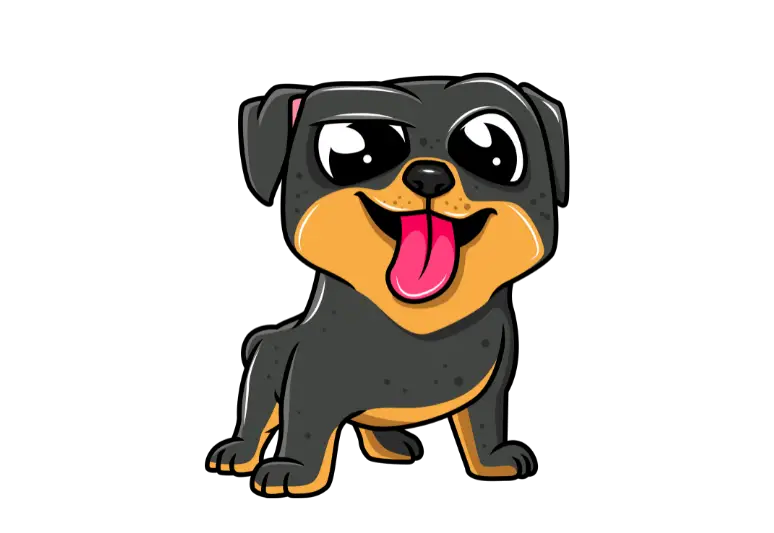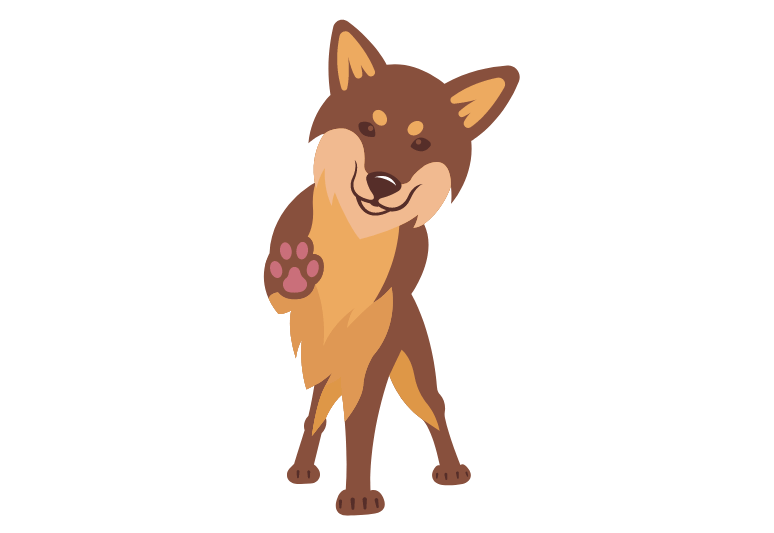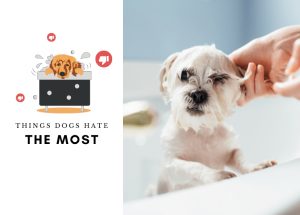Why do dogs chew their feet? This is a question many dog owners ask themselves when they notice their furry friend constantly gnawing at their paws. While the answer may seem straightforward, there is actually a lot more to it than meets the eye.
One of the most common reasons dogs chew their feet is due to pain or discomfort. This can be caused by a variety of factors, such as dry skin, hormonal imbalances, or even cold weather. Additionally, dogs may chew their feet out of boredom, stress, anxiety, or irritation caused by allergies or parasites.
However, the problem is not just the chewing itself, but rather the frequency and duration of the behavior. Dogs who regularly lick or chew their paws over a long period of time may be showing signs of insufficient mental and physical stimulation.
So, what can you do to help your pup if they are constantly chewing their feet?
In this article, we will explore the various reasons why dogs chew their feet and offer some tips and tricks for how to address the behavior.
Whether your dog is experiencing pain or simply needs more stimulation, we’ve got you covered.
So, keep reading to learn more about this common canine behavior and how to help your furry friend feel their best.
How to Tell if Your Dog Is Chewing or Licking Their Feet

It’s time to take a closer look at your pup if you think they might be chewing or licking their paws. Although dogs can do both, it is important to know the difference between the two behaviors so that you can address it properly and help them stop.
When a dog starts excessively chewing or licking their feet, it is usually due to an underlying medical condition such as allergies, parasites, or infections. Chewing their paws will cause redness, inflammation, and even bleeding in extreme cases. Licking on the other hand may not result in any visible signs but can lead to skin irritation over time.
Chewing usually involves more aggressive movements and sounds, while licking will often look like they’re just gently dabbing at their toes with their tongue.
To tell whether your pet is engaging in chewing behavior versus licking behavior, observe how often they are doing it and for how long each session lasts.
If your fur baby is constantly gnawing away at their paws then chances are they have an itch that needs scratching! On the contrary, if you find them simply giving themselves an occasional lick every now and again then this could just be a sign of grooming rather than something more serious.
Let’s focus on a dog licking its feet first, as I will discuss the question of why dogs chew their feet in greater detail later.
If your dog is licking its feet, there can be numerous reasons for this behavior.
Firstly, if your dog is only licking one of its feet, chances are something is physically wrong. It may have suffered an injury unknowingly, which is quite common for dogs.
For example, in areas with water, paws can be hurt by stones, glass, or any other sharp debris that is submerged. In this case, the first step is to calm your dog by cuddling and playing. After that, examine the most-licked foot carefully.
You should look under the paw and between the claws. If there is a light cut, it can heal by itself or you can use a soothing paw balm to speed up the healing process. A deeper cut might require stitches.
Would you like to try more than one product to enhance your pets life? These products will be great for overall wellness and relief from hot spots and abrasions as well as protecting paws, noses, and elbows.
However, if there is no bruise or physical damage present, excessive licking in dogs can be a behavioral issue that may point to something more serious. For instance, dogs may lick their feet due to anxiety, depression, stress, boredom, insufficient mental stimulation, or lack of exercise.
If you’re still unsure after monitoring your pooch’s paw-licking habits then it wouldn’t hurt to consult with your vet either way. They will be able to assess the situation better and advise you on what steps need to be taken next.
6 Reasons Why Dogs Lick and Chew Their Paws, Feet, and Nails

Let’s turn our attention to the question: why do dogs chew their feet? Unfortunately, there is no single answer to this question.
Dogs may lick and chew their feet for a variety of reasons. Here is a list of some possible causes to consider.
1. Allergy and Skin Disease
Allergies are a common problem among dogs, and they can cause a lot of discomfort. As a pet owner, it’s important to be aware of the signs of allergies in dogs, such as intense itching and chewing on their paws and feet.
One common question that pet owners have is, “Why my dog chew his feet even if it’s an allergic reaction?” The answer is that when a dog develops an allergy, it can cause a reaction throughout their entire body, including their feet and paws, resulting in intense itching and discomfort.
If you notice your dog constantly chewing on their feet and paws, it’s important to get them checked by a veterinarian to see if they are suffering from any skin condition or allergy. Some common allergens for dogs include pollen, mold, certain types of trees, dust, and specific foods.
Fortunately, there are many products available on the market to help alleviate the symptoms of allergies in dogs. For example, you can find allergy itch relief shampoos and seasonal allergy supplements that can help soothe your dog’s itchy skin and reduce their discomfort. Additionally, your veterinarian may recommend other treatments, such as prescription medications or dietary changes, to help manage your dog’s allergies and improve their overall health and well-being.
2. Mental Health Issues Such as Depression, Stress and Anxiety
Mental health issues can manifest in various ways in dogs, such as causing changes in their behavior. Chewing on their feet, for example, is a common behavioral change that may indicate a sense of helplessness in dogs.
It’s important to remember that dogs, like humans, can develop mental health issues despite receiving proper care. This is why it’s important to pay attention to any changes in your dog’s behavior and mood.
If you notice that your dog’s behavior continues to be concerning, seeking medical help might be a good option. Alternatively, you could also consider using natural remedies such as
“King Kalm CBD” is a natural cannabidiol oil that is professionally formulated with cannabis extract as the major active constituent (600mg). The composition also contains small percentages of Krill oil, DHA 2, Copaiba oil, fiber, fat, and protein. It is usually recommended for pets who suffer from anxiety, noise discomfort, and inflammation.
- It is a purely natural product and composed of natural and organic ingredients, so there will be no side effects on your dog’s health.
- Has a calming effect to help hyperactive dogs relax and sleep.
- It comes with a 30-day money-back guarantee.
- Recommended for pets who suffer from anxiety, noise discomfort, and inflammation.
- Lab-tested by a third party that eliminates any uncertainty about quality and promises reliability.
- It is made in the US which helps to ensure compliance with quality control procedures.
- It is not for all dogs. The composition of this product is dedicated to anxious dogs who are in discomfort. So professional advice is needed before starting this supplement.
3. Injury and Pain
It is important to keep a watchful eye on your furry friend’s paws and feet as dogs can easily injure themselves without even realizing it. In fact, it is quite common for dogs to bruise their paws and feet since their paws are constantly in contact with the ground. Unfortunately, this can lead to your dog feeling pain and discomfort. When your dog is in pain, he might resort to chewing on his feet to relieve the pain.
While it is true that chewing can help your dog relieve the pain, it can also lead to further complications such as infections. The reason being that when a dog chews on his feet, he is effectively washing the wound which can neutralize bacterial infections. However, if the wound is not properly taken care of, it can easily become infected.
Therefore, it is essential to conduct a thorough examination of your dog’s paws and feet to identify any injuries or wounds. This examination can help you identify the cause of your dog’s discomfort, and you can take appropriate measures to alleviate the pain and prevent any further complications.
4. Parasitic Infection
Parasites, mites, ticks, and fleas may be some of the reasons why dogs tend to chew their feet. These microscopic organisms can easily infect your dog and cause various problems. Not only do these pests irritate your dog, but they can also cause severe health issues such as skin infections, diseases, and allergies.
In some cases, your dog may develop an addiction to chewing its feet as a way to soothe the irritation caused by parasitic infections. The more your dog chews its feet, the more severe the infection can become. Therefore, it is crucial to keep an eye on your dog’s behavior and take action if the chewing becomes intense.
If you suspect that your dog has a parasitic infection, it is essential to take them to a vet as soon as possible. A vet can thoroughly examine your dog and come up with an effective treatment plan that will help to cure the infection and prevent it from reoccurring. Regular check-ups and proper hygiene practices can also help to keep your furry friend healthy and happy.
5. Dry Skin
In both dry and humid weather conditions, your dog’s skin is susceptible to becoming dry and irritated. This can lead to excessive scratching, licking, and even chewing of the feet.
One possible reason for dry skin is the lack of essential fatty acids in your dog’s diet. If this is the case, it is important to adjust your dog’s diet to include more of these nutrients. Another factor that may cause dry skin is extreme weather, such as harsh winters or hot summers.
If your dog is experiencing these symptoms, it is important to take action to help soothe and heal their skin. This can include using moisturizing shampoos or lotions, as well as ensuring that your dog is not exposed to harsh weather conditions for extended periods of time. In more severe cases, it may be necessary to consult with a veterinarian to develop a treatment plan that can help your dog feel more comfortable and healthy.
Each soft chew contains Omega 3, 6 & 9 fatty acids which help maintain a healthy skin and coat. They also provide itch relief for dogs with skin allergies and encourage hair regrowth. Also made with Inulin, a natural prebiotic that provides digestive health support and increases nutrient absorption for an immune system boost.
6. Bacterial or yeast Infection
Bacterial or yeast infections can be another reason why dogs chew their paw pads. If your dog has an infection, it can cause itching and discomfort, which can lead to excessive licking and chewing. Some common signs of an infection include redness, swelling, discharge, and a foul odor.
If you suspect that your dog has a bacterial or yeast infection, it’s important to take them to the vet for a proper diagnosis and treatment plan. Your vet may prescribe antibiotics or antifungal medication to help clear up the infection and alleviate your dog’s symptoms.
Additionally, you can take steps to prevent future infections by keeping your dog’s paws clean and dry, avoiding exposure to contaminated environments, and maintaining good hygiene practices. By doing so, you can help keep your furry friend healthy and happy, and prevent them from engaging in excessive foot chewing.
Tips to Stop Your Dog From Chewing on His Paws and Feet

It’s natural for dogs to occasionally chew their feet. However, if the situation worsens, it’s important to determine the underlying cause of the behavior. If necessary, consult a veterinarian.
Once the problem has been diagnosed, you can try any of the following tips that best suit your dog’s needs.
- Parasite prevention is an essential part of keeping your dog healthy. If parasites attack your dog, it can cause serious problems. Your dog’s vet can recommend some good products to help you eliminate parasites from your dog’s body.
- Food allergies can be a real problem for some dogs. If your dog has allergies, changing your dog’s food and going for healthier and simpler diets can help. Be sure to consult with your dog’s vet first.
- Physical activity is important for dogs to maintain their health and happiness. Make sure to give your dog enough exercise, attention, and playtime to address stress, anxiety, and frustration in your dog. This can include daily walks, visits to the dog park, and interactive play sessions.
- If your dog has a bad habit of chewing on furniture, shoes, or other household items, you can use bitter spray on the required area. This will help your dog learn that it’s not okay to chew on those items.
- Keep your dog’s feet clean and dry: Wet and dirty paws can become itchy, so it’s essential to keep them clean and dry. Wipe your dog’s paws with a damp cloth after they’ve been outside, and dry them thoroughly.
- Provide toys and chews: Providing your dog with toys and chews can help redirect their chewing behavior to something more appropriate. Make sure the toys are sturdy and safe for your dog to chew on.
- Medication should only be used if your dog’s vet prescribes medication as a treatment. Be sure to follow the vet’s instructions carefully and monitor your dog’s reaction to the medication.
- Consider a cone: If your dog’s chewing behavior is severe, you may need to use an Elizabethan collar (cone) to prevent them from reaching their paws. Make sure to supervise your dog while they’re wearing the cone.
- Seek professional help: If your dog’s chewing behavior persists despite your efforts, it may be best to consult with a professional dog trainer or behaviorist to determine the underlying cause and develop a plan to stop the behavior.
Medical Interventions: When to Seek Veterinary Care for Paw Chewing
If your pup’s paw licking and chewing has become overly excessive, it might be time to take them for a veterinary visit. Although every dog is different, you should notice that your dog is licking or biting their feet more than normal or if they are causing wounds, this could indicate an underlying medical issue.
It’s important to identify the cause of the behavior in order to treat it effectively and prevent long-term damage.
| Signs & Symptoms | When To Seek Veterinary Care | Possible Causes |
| Unusual Licking/Chewing | Immediately | Allergies/Infections/Skin Conditions |
| Redness/Swelling | Within 24 hours | Painful Joints/Bones |
| Open Wounds | ASAP | Behavioral Issues |
It’s critical to recognize when something isn’t quite right with our canine companions and seek out help if necessary. If you can catch any signs early enough, there may be quick steps you can take at home before seeking professional care. See your vet as soon as possible if you suspect a problem – waiting too long will only make matters worse.
Once we understand what is going on with our furry friend, then we can begin developing a plan for preventing foot chewing in dogs: best practices and preventive measures.
Preventing Foot Chewing in Dogs: Best Practices and Preventative Measures
It is important to take steps to prevent your dog from chewing or licking their feet.
While it can be difficult to determine the exact cause of paw chewing, knowing what signs and symptoms to look for can help you intervene before the problem becomes severe. One way to tell if your dog is chewing his paws is if he licks them excessively.
If you see him doing this, it could be a sign that he is trying to soothe an itch or other discomfort in his paws. Dogs sometimes chew at the tops of their feet as well – this behavior is particularly common on the front paws.
To reduce the likelihood of foot-chewing episodes, make sure your pet’s nails are trimmed regularly, keep his coat clean and free of mats, and check for any foreign objects between toes like pebbles or burrs. Checking your pup’s feet after walks helps ensure there are no cuts or injuries that may have been caused by rough terrain.
Additionally, try switching up his diet with a high quality protein source and provide supplements such as omega fatty acids which will help promote healthy skin and coat condition.
Finally, providing plenty of mental stimulation throughout the day through interactive toys and puzzle feeders can also help curb unwanted behaviors like paw-licking. The key here is prevention: identifying potential causes early on can go a long way toward keeping your pup happy and healthy!
Effective Remedies: How to Stop Your Dog From Chewing His Paws
Recent research suggests that as many as 25% of all dogs have a problem with chewing on their feet or paws. Whether your pup is dealing with an itch, boredom, anxiety, or some other underlying issue, it’s important to make sure he stops the behavior before he causes any further damage to his skin.
Fortunately, there are several effective remedies you can use to stop him from biting at his front paws.
For allergic dogs, limiting exposure to allergens and using anti-itch medications may be enough to keep them from gnawing away at their fur.
If your dog bites because of boredom or anxiety, try providing more mental stimulation in the form of interactive toys and puzzle games that offer rewards when solved correctly.
Additionally, addressing any environmental stressors like loud noises could help reduce anxious behaviors such as paw licking and foot chewing.
Finally, consider teaching your pooch positive commands like ‘leave it’ and redirecting his attention elsewhere whenever he begins biting at himself too much.
You might also give him something else to chew on; rawhide chews or Kongs filled with peanut butter are great options for occupying a pup’s mouth instead of her feet!
With these steps in mind, you should be able to find ways to stop your dog from nibbling at her paws and enjoy long walks together again soon.
Frequently Asked Questions: Dog Chewing Paws

Conclusion
The question of why dogs chew their feet is a complicated one that does not have a straightforward answer. There are a variety of factors that can contribute to this behavior, and it can be difficult to determine the exact cause.
One possible explanation for why dogs chew their feet is that it is a natural behavior that they engage in from time to time. However, if your dog is engaging in this behavior excessively, it could be a cause for concern.
To help prevent your dog from chewing its feet, there are several tips and strategies that you can try. One of the most important things you can do is to make sure that your dog is getting enough exercise and mental stimulation. Additionally, you may want to take your dog to the vet to rule out any underlying medical conditions that could be causing the behavior.
By taking these steps, you can help keep your dog healthy and happy, and prevent it from engaging in excessive foot chewing. And if your dog does need help with this behavior, you now have the knowledge and tools to assist it.
Thank you for taking the time to read this article. If you have any questions or concerns, please don’t hesitate to reach out. I wish you and your furry friend all the best.
Until next time,
Best of luck to you both!
Extra resources:







